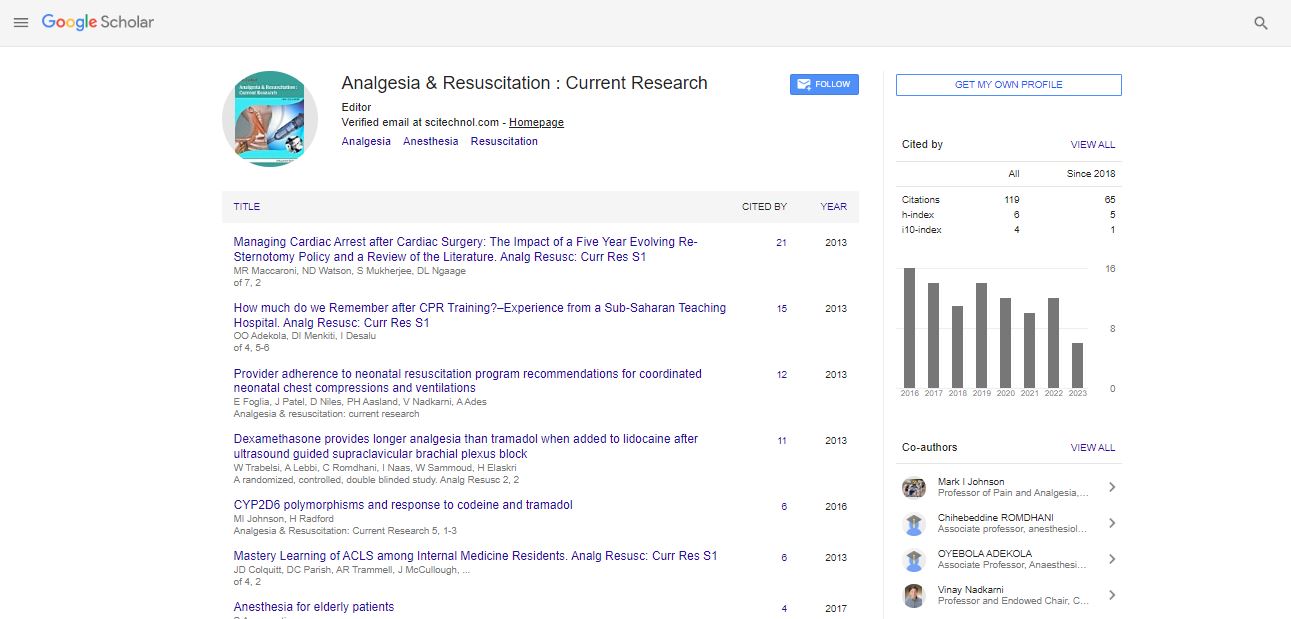Research Article, Analg Resusc Curr Res S Vol: 2 Issue: 0
Effect of Neuromuscular Blockers on Outcomes in Patients Receiving Therapeutic Hypothermia Following Cardiac Arrest
| William L Baker1,2,3*, Giovanni Geronila4, Ranya Kallur4, Adam Noyes4, Lindsay Smyth1, John T Stiles1, Kelley N Sawyer5 and Justin B Lundbye2,4,6 |
| 1A1University of Connecticut School of Pharmacy, Storrs and Farmington, CT, USA |
| 2University of Connecticut School of Medicine, Storrs and Farmington, CT, USA |
| 3Division of Drug Information, Hartford Hospital, Hartford, CT, USA |
| 4Division of Cardiology, Hartford Hospital, Hartford, CT, USA |
| 5Department of Emergency Medicine, Oakland University William Beaumont School of Medicine, Rochester, MI, USA |
| 6Division of Cardiology, Hospital of Central Connecticut, New Britain, CT, USA |
| Corresponding author : William L Baker, Pharm.D., BCPS (AQ Cardiology) Assistant Professor of Pharmacy and Medicine, University of Connecticut, Schools of Pharmacy and Medicine, 263 Farmington Ave, MC2205, Farmington, CT 06033, USA Tel: 860-679-3889; Fax: 860-545-2277 E-mail: wbaker@uchc.edu |
| Received: April 05, 2013 Accepted: May 30, 2013 Published: June 07, 2013 |
| Citation: Baker WL, Geronila G, Kallur R, Noyes A, Smyth L, et al. (2013) Effect of Neuromuscular Blockers on Outcomes in Patients Receiving Therapeutic Hypothermia Following Cardiac Arrest Analg Resusc: Curr Res S1. doi:10.4172/2324-903X.S1-001 |
Abstract
Effect of Neuromuscular Blockers on Outcomes in Patients Receiving Therapeutic Hypothermia Following Cardiac Arrest
The use of mild therapeutic hypothermia therapy (MTH) for the preservation of neurological function and improvement in survival after cardiac arrest has been well established. Complications of MTH include electrolyte shifting, hypercoagulability, hyperglycemia, and seizures, among others. Additionally, the prevention of shivering is important as it can negate the beneficial effects of MTH through a variety of mechanisms. These include increased oxygen consumption, increased metabolic demands, and increases in intracranial pressure. Current guidelines and numerous clinical trial protocols recommend the use of sedatives and neuromuscular blockers (NMBs) to prevent shivering during initial cooling.
 Spanish
Spanish  Chinese
Chinese  Russian
Russian  German
German  French
French  Japanese
Japanese  Portuguese
Portuguese  Hindi
Hindi 
